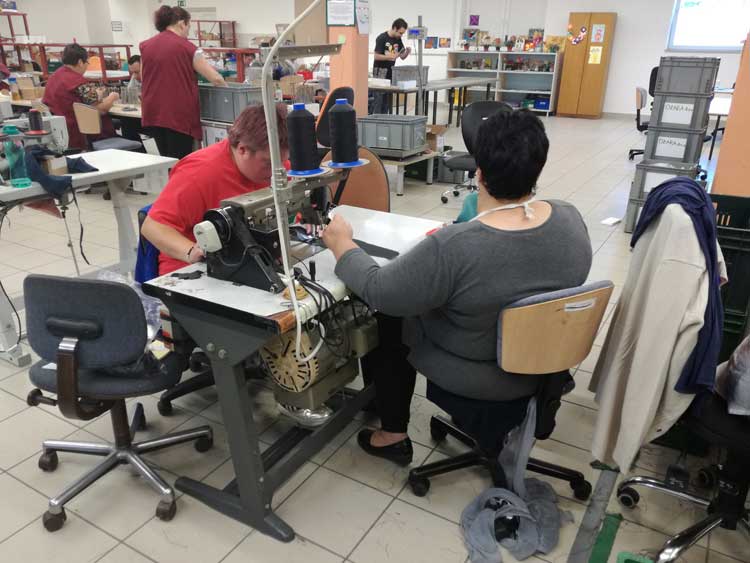EMPLOYMENT OF PEOPLE WITH MENTAL ILLNESS: THE SITUATION IN SLOVENIA
 The estimated scope of persons with disabilities in Slovenia is around 12-13% of the total population, which does not differ significantly from the estimated scope in the EU. However, an increase in the population of persons with mental disparities is noticeable. Persons with mental health problems are often in danger of being stigmatized and ascribed as simply being different which can lead to situations in which they are treated as inadequate labour force.
The estimated scope of persons with disabilities in Slovenia is around 12-13% of the total population, which does not differ significantly from the estimated scope in the EU. However, an increase in the population of persons with mental disparities is noticeable. Persons with mental health problems are often in danger of being stigmatized and ascribed as simply being different which can lead to situations in which they are treated as inadequate labour force.
The latter often happens due to stereotypical thinking of persons with mental disabilities being less capable in general, with little or no ability to adapt and concentrate on work, have not the capacity of being and therefore less employable. On the other hand, educations alongside with employment are crucial factors, which contribute to socio-economic independency of persons with mental problems. Due to lower qualifications, these persons tend to have worse starting opportunities on the job market, are at risk of a faster job loss and are facing difficulties within progress in their own work placements. Considering the latter, it is of great importance to provide all possible measures (various programs and trainings), that can contribute to an increase of their employability. It is also important to raise awareness among employers, that there are several possibilities for adaptions of the working environment and the workplace, and to encourage persons with different disabilities to actively search for employment.
Employment of persons with mental health problems is important both in terms of provision of personal existence and in terms of integration into the working environment. Therefore, the state with its legal standings and raising awareness activities on national level provides the basis for integration of people with mental disparities into different working environments. According to national (Slovenian) regulation system in this field, the following options occur in terms of support and integration in the labour market. For persons who have minor mental disparities, the state intervenes in the free labour market on their behalf. Others, who face disparities in a much larger scope, may be included in employment under special conditions within different disability companies, employment centres, care and working centres, social enterprises, NGOs and others. Within the national “Action programme for people with disparities 2014 – 20121” set out a priority field to be taken into consideration which is the field of work end employment (raising employment rates among the target group, improvement of inclusion of unemployed persons in broad scope of life-long career orientation programmes, enabling an effective support system for organisations who employ people with disparities, etc).





